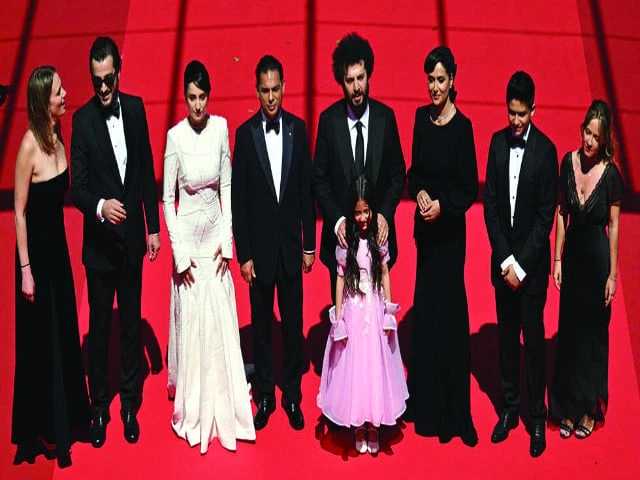Lifestyle
Iran’s Cannes Film Gains Official Approval Amid Controversy

Iranian director Roustayi has returned to the Cannes Film Festival in 2025 with his film Woman and Child, which has received official approval from Iranian authorities. This marks a change from his previous film, Leila’s Brothers, which was banned in Iran and resulted in a suspended jail sentence for Roustayi. Cannes has long been a platform for independent Iranian filmmakers whose work is praised internationally but often banned at home.
The new film’s script was approved by Iranian censors, and the actors follow Iran’s laws by wearing hijabs at all times on screen, including in private settings where women usually do not cover their heads. Roustayi explained that permits are required to shoot in public locations and use professional equipment, making approval necessary despite his personal wishes. At the Cannes premiere, the actresses mostly did not wear hijabs on the red carpet, though the lead actress wore a subtle head covering. Iranian state media praised the film, calling its selection an important moment for Iranian cinema.
Woman and Child tells the story of a widow who struggles to balance her nursing job, family, and personal life. Roustayi aims to create socially conscious films to improve the quality of Iranian cinema, which is often dominated by commercial movies with less substance. However, his decision to seek official approval has drawn criticism from some exiled Iranian filmmakers.
Since the 2022 Women, Life, Freedom protests, the hijab has become a symbol of resistance against Iran’s mandatory dress code. Some exiled filmmakers view Roustayi’s adherence to government rules as a form of complicity. They accuse the Iranian government of using films like his as tools to project an image of freedom of speech that does not exist in reality.
Roustayi’s approach differs from fellow Iranian director Jafar Panahi, who has openly defied censorship for years. Panahi’s latest film, It Was Just An Accident, features women without hijabs and directly addresses political repression. Panahi has been banned from filmmaking and imprisoned but continues to find ways to make films secretly.
Another Iranian director, Mohammad Rasoulof, fled Iran last year fearing imprisonment after making a film about recent protests. Despite their differences, Rasoulof defended Roustayi, pointing out the difference between propaganda films and those made under censorship constraints.
Iranian filmmakers continue to face severe challenges due to government censorship, requiring permits and strict dress codes on screen. Cannes provides a vital platform for Iranian cinema, though many directors must balance artistic goals with political realities.








